It's been about a year since I first covered Gazzan (then operating as Dead Shall Rise), and I would still contend that the band needs little (if any) introduction. Its lineup—Aaron Melnick, Lenny Melnick, Blaze Tishko, Rob Orr, and Trevor Moment—boasts an impressive aggregate résumé that reads like a "who's who" of legendary Cleveland hardcore/metal acts, and then some. But that's all in the past. I spoke with Aaron and Blaze about Gazzan's excellent new EP, and what's to come...
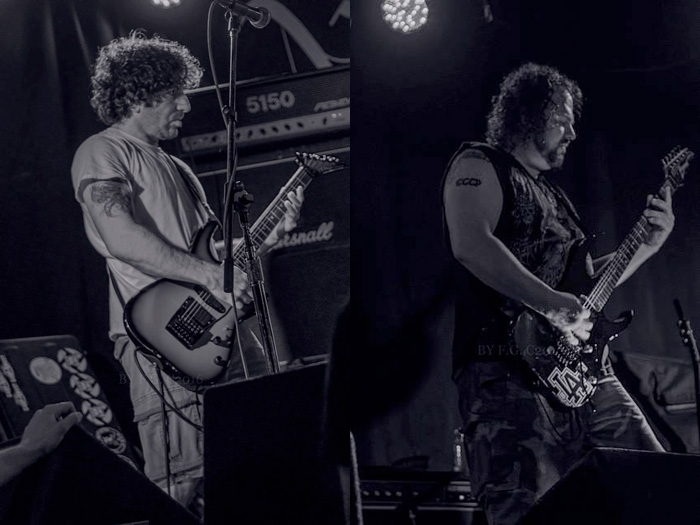
There are a million questions I'd love to ask each of you, but we'll save that for another day and focus on the present for now. I will, however, touch on In Cold Blood for just a minute here. In Cold Blood and Gazzan did coexist at one point—the two bands were actually slated to play a show together two months ago—but what's the status of In Cold Blood now? It looks like the band's Facebook page has gone M.I.A., so is that over and done with again?
Blaze: It just got too difficult to focus on both bands. Plus, Bourbon lives about 10 hours away, and that doesn't help much either.
Aaron: I think In Cold Blood is done, as far as I can see. Burb is moving on to other things.
Since the bands did coexist, what separated the two from your perspective, since each shared the same core lineup and songwriters?
Aaron: Gazzan is an empty slate, In Cold Blood was not.
Gazzan formed in the first half of 2015 (I think) under the name of Dead Shall Rise. Obviously the two of you and Lenny had a long history together and had been reinvigorated with In Cold Blood the year prior, but how did Rob Orr enter the fold? He certainly wasn't a stranger, but what's the gist of how the original four-piece lineup came together as Dead Shall Rise?
Aaron: After playing with Rob at the Integrity reunion, I realized he was a great drummer. Matt Izzi [Homewrecker, etc.] was playing with us for a while, but he had a lot on his plate, so Rob stepped in.
Blaze: We were interested in exploring the music that we never got to create. Aaron asked if I wanted to get into another band with him, and then Lenny agreed to be in it also, after being out completely for probably close to 15 years. We have been pigeonholed in most of the bands that we have ever been in, and this was an opportunity to try some things we also wanted to do, but never had the creative freedom to try.
You started working on the tracks that would ultimately make up the Extinction EP in May of 2015, but it wasn't until September of 2015 that word started getting out. Were you intentionally keeping things under wraps?
Blaze: Finding a singer proved difficult, so we did it ourselves, and that was a departure for us, so it took some time to get the vocals how we wanted.
Aaron: We always play our cards close to the vest.
Toward the end of 2015, still as Dead Shall Rise, a four-song EP was sort of unofficially released via a SoundCloud stream. I completely flipped out, and just could not make sense of why the news didn't immediately start to spread throughout many of the more prominent hardcore/metal websites. I mean, every single member of the band has an absolutely insane pedigree. Has it been an odd/unexpected struggle to get things moving as a completely fresh start?
Blaze: You would think because of the things we have accomplished in the past that someone would be eager to get behind it, but music—and especially the Cleveland music scene—is a very weird place, especially now. A lot of jealousy, a lot of backstabbing, zero unity. In a way, it was liberating, and after having some conversations with Todd Jones from Nails, I was very at ease with the lack of attention. You have to do this for the right reason. If you watch our last show at The Foundry, Trevor talks about this to some extent, but one line that resonates with me especially is when he talks about if you think we are doing this to be "cool guys" at this point—when people have taken our music and are getting a lot of attention because of it—then you are very mistaken. We play to the people that want to hear what we need to create. That's it, more than anything. A need to create and a bond that we have. Isn't that what it is supposed to be? There are a whole bunch of people who are doing this for the wrong reason.
Aaron: I have done many projects over the years, and have not usually put "members of this-or-that." Some of my other bands have been more successful from a monetary point of view, and some have not. I love playing music regardless.
The aforementioned EP—an early version of Extinction on which Blaze handled lead vocals—was called The Gazan Mardu. If Google is to be trusted, I believe that's Armenian for "the beast man," or something to that effect, and of course points to the band's new name. What led to the name change, and why the extra "z"?
Aaron: Blaze made up the name, so I'll let him answer that.
Blaze: I thought hard about a name for the band. After one conversation with Aaron, we talked about how fucked the world is and that man has this beast inside of him. Those guys are Armenian, and I looked up what that meant and thought it was perfect. The Melnicks weren't as excited about it as I was, as I wanted to call the band Gazan Mardu ("the beast of man"). I was loaded and watching a Terrorizer video one night, and one of my favorite songs on that record was "Dead Shall Rise." I thought that was kind of a fitting name, and we went with that for a minute. Someone said it sounded like a nu-metal band name or something, and that kind of ruined it for us. When we got Trevor in, it was a good time to go with a new name. Trevor came up with the two "z"s, Kiss-style, and that was it. Because two "z"s are better than one.
As you mentioned, with the new name came a new frontman—Trevor Moment, from American Werewolves—as Blaze wanted to focus on playing guitar. It sounds like you had tried to find a singer when the band first formed, but it never worked out, so how did Trevor finally get involved?
Blaze: I had thought that Trevor would be a good fit from the start, but he was busy with his other bands recording at the time. He actually had sent me a message a long time before we got together, but I never saw it. We had a clear-cut vision of what we were looking for vocally, and we weren't going to settle on some random douchebag (which is most of the people who tried out).
At that point, you revisited the original recordings, once more with Bill Korecky at the Mars Recording Compound—an engineer and studio near and dear to the hearts of many a Cleveland hardcore/metal fan. Blaze, you've recently joked that Bill can be a bit of a hardass on performance standards, so I'm curious what your experiences were like tracking this material?
Blaze: Bill is a sixth member of the band. He always pushes you to be your best, and I love that about him. Sometimes we can get complacent, and if you tell him going in that that isn't allowed, then he won't let it happen. I told him going in that this wasn't going to be some punk rock, shitty recording. We needed perfection.
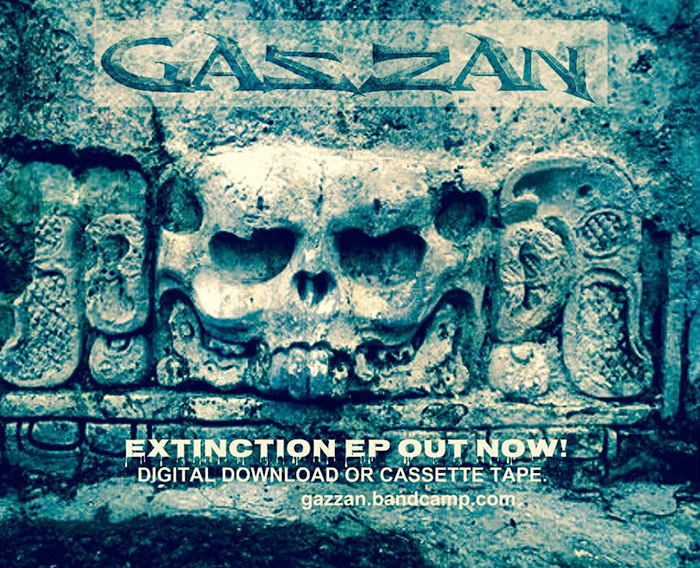
The final version of the Extinction EP was self-released last month, first digitally on Bandcamp, and now as an additional limited edition run of 200 cassettes. Perhaps it's my naïve fanboyism, but I feel like you must have been approached by at least a label or two at this point?
Blaze: We had some preliminary discussions with Fast Break! Records, but it was more of a distribution-type deal. Nobody wanted it, and that only fuels the fire to try and achieve more. I guess nostalgia hardcore bands are more the rave these days? But I don't even think those guys put out records. We have been striving to achieve our freedom anyway. It would have been a lot easier to try and revive In Cold Blood and go that route, that's what everyone else does. But that is doing it for the wrong reason. Not an option. So, we put it out ourselves. We have good jobs, we make money, we're not trying to have this pay our bills. These days, you can actually be rewarded for having good intentions—and, I suppose, be rewarded for bad intentions, too?
Aaron: At this stage, we would like to have control over the music.
We touched on a bit of this earlier, but musically these tracks are very much in line with what fans of the members' past work should know and love. I see absolutely no reason why any fan of Integrity or In Cold Blood wouldn't be all over this. From the inside, though, are there any subtle variances in how the compositions were approached?
Aaron: I write how I always have: from my heart.
Blaze: I have felt that heavy music in some ways is done from an original composition standpoint. One thing I wanted to do was make something that was catchy but didn't follow the same, boring 4/4 timing that everyone has. I wanted people to be surprised by what was coming next. That's all that's left in the genre.
Blaze, on a recent episode of the Rust Belt Hammer podcast, you laughed about Aaron and yourself arguing over guitar riffs. I can't imagine either of you crankin' out many stinkers in the riff department, so I have to ask what those arguments look like!?
Blaze: That's the beauty of what we do: we eliminate the stinkers. Sometimes, you'll come up with something—usually after a whole bunch of beers—and bring it in thinking it's the best thing ever, and then it gets shut down. But that is the reason we have been able to come up with good stuff: we are our own worst enemies, and we try not to let crappy ideas get in. I think that is the difference between a good band and a mediocre band: not being scared to tell the other guys it sucks.
Aaron: I usually come up with some riffs, or whole songs, Blaze tells me some of his ideas about them (or vice versa), and we try to create the best song we can. We want to write songs that have feeling, are heavy, and are catchy.
Lyrics haven't been made available, so how would you describe the lyrical content of the songs? An ultra-direct track title like "Bleed for Metal," for example, has a borderline Manowar vibe on a superficial level, though of course the lyrical content is not coming from that type of angle at all.
Blaze: I wrote the lyrics to that song, and I would not call myself a lyrical genius. That song is about a lot of things, but the chorus mostly is about our struggles to do what we love. And I love Manowar.
Aaron: Lyrics reflect our view of the world. The world sucks, but you have to rise to meet it the best you can. This planet is dark, and terrible things happen here. The more I have witnessed, the more I am sickened. People will always screw each other over for the almighty dollar. People will kill each other to get what they want, even if it's not necessary. The human race must grow to survive, or we are done.
Gazzan's been getting out there playing shows and doing a little bit of traveling, though I'd imagine that's tough with several of the members having families, etc. How far do you think you'll run with that?
Aaron: If we get offers for shows that make sense, we will do them. Family comes first, though.
Blaze: Our lives are pretty busy outside of the band. Between Aaron, Lenny, and I, we have eight children. Rob is in college, and Trevor is married and a full-time tattoo artist. We will let the band grow organically, as if we were 20, and see what happens. If the worst thing that happens is we make music that we can hang our hats on and our friends can get into it, then mission accomplished. But I would imagine that the five of us will be making music together in some capacity for some time. We have been able to escape the drama that has followed us our whole lives.
It seems like things are finally starting to pick up steam here, and there are murmurs of a full-length LP in the works. Without giving too much away, what can you share about the new material and what's to come?
Aaron: We are writing songs and bouncing ideas off of each other. It has been cool to work with Trevor on vocals. Lenny and Rob are rounding into a great rhythm section, and seem to know the riffs I am showing them before I do.
Blaze: Our mission from the start was to create a full-length that we could look back at in 20 years and be proud of. We will be back at Mars in the fall and we will keep trying to write heavy, catchy, and introspective music. Hopefully you can get into it. One thing is for sure: we're going to have a great time doing it, because the baggage of all of our past bands is behind us.
***
Keep up-to-date with Gazzan on Facebook. Stream, download, or grab a limited edition cassette of Extinction (and/or a t-shirt) via Bandcamp.




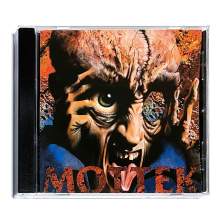


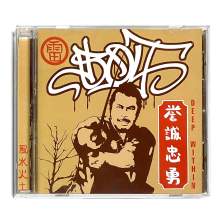
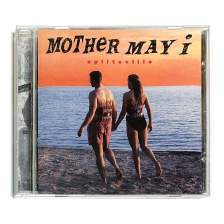
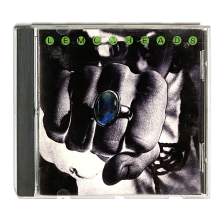
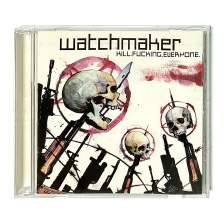

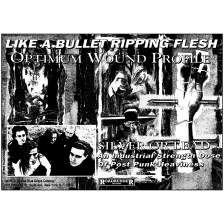
Comments
This is some nasty stuff..you can hear In Cold Blood, you can hear Integrity (the soloing), but it definitely has its own identity…Man, this band should become as huge as Integrity was and still is…...
12.21.2016 | By Andrew Van den Berg